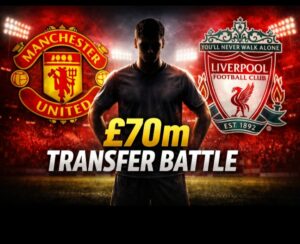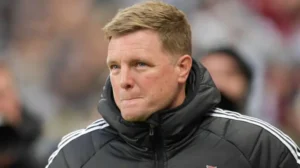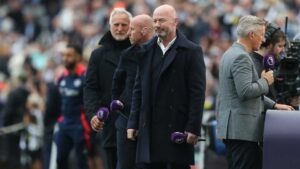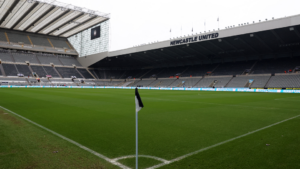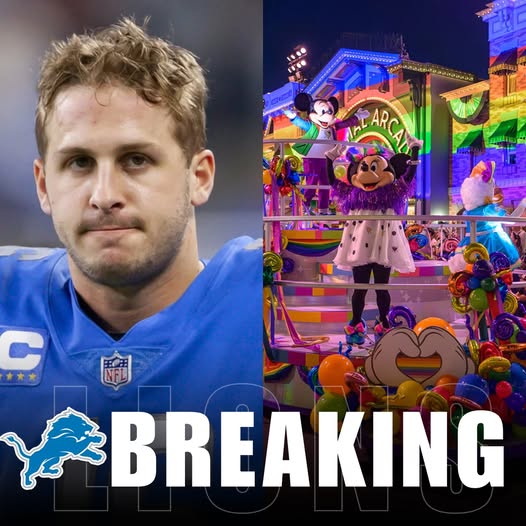
Detroit Lions’ Alex Anzalone Calls for NFL Pride Night Boycott: ‘Football Should Stay Unwoke’
In a development that has stirred considerable debate within the NFL community and beyond, Detroit Lions linebacker Alex Anzalone, widely respected as a spiritual leader in the locker room, has publicly declared his decision to boycott this year’s NFL Pride Night. Anzalone, known for his outspoken and principled stance on various issues, asserted that the focus on the field should remain squarely on football — not on what he terms “woke” activism. His comments have ignited a conversation around the intersection of sports, social activism, and the evolving culture within professional football.
Who is Alex Anzalone?
Before delving into the controversy, it’s important to understand who Alex Anzalone is and why his voice carries weight. Drafted by the New Orleans Saints in 2017 and currently a key defensive player for the Detroit Lions, Anzalone has earned a reputation not just for his on-field performance but also for his leadership off the field. Teammates and coaches alike regard him as a steady, thoughtful figure — someone who combines deep personal faith with a commitment to team unity and focus.
Known for his candidness in interviews and his ability to inspire those around him, Anzalone’s views often reflect a blend of traditional values and an emphasis on discipline and professionalism. His recent boycott declaration is consistent with his broader philosophy: that sports, and particularly football, should primarily be about competition, skill, and teamwork.
The NFL Pride Night Tradition
NFL Pride Night is an annual event aimed at promoting inclusivity and support for LGBTQ+ players, fans, and allies within the sport. Teams across the league participate by wearing rainbow-themed apparel, engaging in outreach activities, and hosting events designed to foster awareness and acceptance. The league has increasingly emphasized its commitment to diversity and inclusion, seeing it as part of its broader social responsibility mission.
Supporters of NFL Pride Night argue that sports — as a cultural institution — have a unique platform to advance social change and provide safe spaces for marginalized groups. For many LGBTQ+ players and fans, the visibility and affirmation that Pride Night offers can be deeply meaningful.
Anzalone’s Statement and Reasoning
Alex Anzalone’s boycott announcement came via a social media post and a series of interviews, where he expressed his concerns that Pride Night and similar initiatives detract from the primary purpose of football. He stated:
“When we step on the field, our job is to play football, to compete, to give our best to the game and to our teammates. Introducing political or social agendas in that setting risks dividing us and shifting focus away from what truly matters — the sport itself. I respect everyone’s right to live authentically, but on the field, the focus should be football, not woke.”
By “woke,” Anzalone was referencing what he perceives as an increasing trend in sports and broader society to intertwine activism with entertainment and competition. He voiced concerns that this blending could alienate players and fans who prefer to keep sports a politically neutral arena.
Reactions from Teammates and the NFL
The reaction to Anzalone’s boycott has been mixed, reflecting the complex and often polarized nature of discussions around social issues in sports.
Supporters
Several teammates and fans have voiced their support for Anzalone’s stance, applauding him for standing firm on his principles. They echo his sentiment that football should remain a neutral space focused on athletic performance and team cohesion. One fellow player commented on condition of anonymity:
“Alex is a guy who keeps it real. For us, the locker room should be a place where we put all that other stuff aside and focus on football. It’s not about disrespect — it’s about keeping our priorities straight.”
Critics
On the other hand, many players, commentators, and activists have criticized Anzalone’s boycott as dismissive of the legitimate struggles and identities of LGBTQ+ individuals within the sport. They argue that promoting inclusivity and acceptance is not a “political agenda” but a fundamental human rights issue that sports have a responsibility to support.
Former NFL player and outspoken advocate Ryan O’Callaghan tweeted:
“Sports have the power to bring people together — not to exclude or ignore. Pride Night isn’t about politics; it’s about standing up for those who have been marginalized. If you’re on the field, you should support all your teammates and fans, no matter who they love.”
The NFL itself has not officially commented on Anzalone’s boycott but continues to emphasize its commitment to inclusion and diversity. League officials have previously stated that Pride Night is part of their effort to create a welcoming environment for all players and fans.
The Broader Context: Politics and Sports
Anzalone’s boycott taps into a broader, ongoing debate about the role of politics in sports. For decades, athletes have been at the forefront of social movements — from Muhammad Ali’s refusal to fight in the Vietnam War to Colin Kaepernick’s kneeling protests against racial injustice.
However, this intersection is fraught with tension. Some fans and players welcome activism as an expression of personal and social conscience, while others see it as a distraction or even an unwanted intrusion into what they consider an apolitical space.
The term “woke” itself has become a flashpoint, often used to describe progressive activism but also weaponized to criticize or dismiss social justice efforts. For some, “woke” initiatives represent essential progress; for others, they signal overreach or divisiveness.
What Does This Mean for the Future?
Anzalone’s boycott raises important questions for the NFL and its players moving forward:
- Can football be both a platform for social change and a space for pure competition?
Many argue the answer is yes, citing examples of players who have successfully balanced activism with on-field excellence. Others believe the two goals are inherently at odds. - How should teams handle differing opinions within the locker room?
Anzalone’s stance highlights the diversity of thought among players. Managing this diversity without creating rifts is a challenge for coaches and organizations. - What is the role of the NFL as a cultural institution?
As one of the most-watched sports leagues in America, the NFL’s choices around events like Pride Night have ripple effects far beyond the field.
Alex Anzalone’s boycott of NFL Pride Night is more than just a personal protest; it is a microcosm of the ongoing struggle to define the role of social activism in professional sports. His call to keep the focus “on football, not woke” resonates with many who seek a traditional view of sports as a unifying and apolitical arena. Yet, it also challenges the league and its community to consider how best to support diversity, inclusion, and the evolving identities of players and fans.
As the NFL navigates these complexities, one thing remains clear: the dialogue between athletes, fans, and institutions will continue to shape the culture of football — on and off the field — for years to come.

